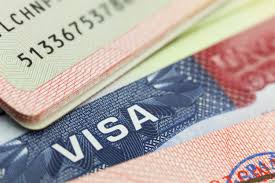Does peer reviewing for international journals carry more weight for an EB-1 visa application?
Does reviewing research articles for internationally recognized journals (as opposed to regional or national journals) enhance my EB-1 application? Are there specific guidelines for documenting international peer review experience?

1 Answer

Yes, peer reviewing for international journals does carry more weight in an EB-1 visa application, especially for the EB-1A subcategory (extraordinary ability). Here’s why and how you can document it effectively:
Why International Peer Review Carries More Weight
- Global Recognition of Expertise: International journals are typically viewed as more prestigious and widely recognized across borders, making them strong evidence of your international acclaim. USCIS places significant emphasis on demonstrating that the applicant's work is recognized on an international scale, which is a key requirement for the EB-1A category.
- Broader Impact: International journals tend to have a larger and more diverse audience. Reviewing articles for such journals implies that your expertise is valued by a global network of scholars, which aligns with the extraordinary ability standard set for EB-1 applicants.
- Reputation of the Journal: High-impact international journals often maintain rigorous peer review processes and publish articles that are well-regarded globally. Being selected to peer review for these journals further demonstrates that you are considered a leading expert in your field.
- Alignment with EB-1 Criteria: The EB-1A visa requires applicants to demonstrate their national or international recognition. Peer reviewing for high-impact international journals directly supports this criterion, as it reflects your contributions to knowledge on a global level.
Documenting International Peer Review Experience for EB-1
Here are the guidelines for documenting international peer review experience and maximizing its impact in your EB-1 visa petition:
- Provide Evidence of the Journal’s International Reach and Prestige:
- Impact Factor: Include information on the impact factor of the journal, as it indicates the journal's influence in the field. High-impact journals are more likely to be seen as prestigious.
- Global Reputation: Emphasize the international reputation of the journal. Mention if it is a widely respected journal, particularly within global academic circles. Providing evidence of its reach (i.e., readership across different countries) strengthens your case.
- Journal Ranking: You may also provide the journal's rank within its field, especially if it’s considered top-tier within your academic discipline.
- Documentation of Invitations to Review:
- Formal Invitations: Include official invitations from international journals requesting you to review articles. The frequency of such invitations helps demonstrate that you are a highly sought-after expert globally.
- Recognition as a Senior Reviewer: If you have been recognized as a lead reviewer or part of the journal’s editorial board, include this as evidence of your elevated status and ongoing recognition in the global academic community.
- Provide Letters from Journal Editors:
- Letters of Recommendation: Obtain letters from journal editors or publishers that explain your role and contributions as a peer reviewer. They should highlight your expertise, the impact of your reviews, and why you are trusted to review articles for their journal.
- Specific Contributions: The letters should detail how your reviews led to improvements in the papers or contributed to the advancement of research in the field.
- Demonstrating Influence on Published Work:
- Citations of Reviewed Articles: If any of the articles you have reviewed have been cited frequently or received significant recognition after publication, make sure to mention these facts. High citations can show that the research you contributed to is influential.
- Published Articles: If your reviews helped shape landmark papers or led to major changes in how research is conducted in your field, this can strengthen your case that your influence extends beyond peer review to the broader academic community.
- Highlighting International Collaboration:
- If the journal’s authors or the articles you reviewed involved international collaboration or had a global scope, emphasize this as evidence of your global engagement. Reviewing international research further demonstrates your role as a key player in a global academic network.
- Detailed Overview of Reviewed Papers:
- In your petition, include a list or summary of the research articles you have reviewed for international journals. Include their titles, authors, and a brief explanation of how your review contributed to improving the article. You can also mention whether these papers have been published or cited in international conferences or global publications.
Other Considerations
- Regional or National Journals: While reviewing for regional or national journals can still be valuable, international journals are generally seen as more significant in establishing your international recognition. However, if your regional or national journal is particularly influential within a specific field or country, it may still support your application.
- Focus on Recognition: The more recognition you receive from the journal editors and the broader academic community (e.g., being invited to serve as a peer reviewer multiple times for international journals), the stronger your case will be for extraordinary ability.
By documenting your peer review experience for international journals thoroughly and emphasizing their global impact, you can significantly enhance the strength of your EB-1 visa petition.
Related Tags
View AllMost Active
View All








